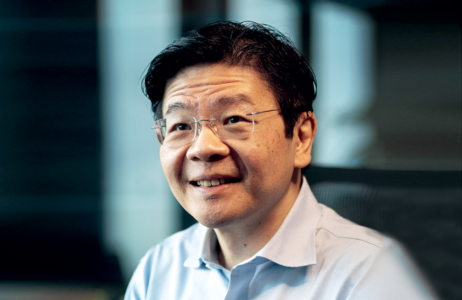PM Lawrence Wong emphasizes the need for vigilance and adaptability in the fight against money laundering.
SINGAPORE: Lessons learned from the S$3 billion money laundering case will help Singapore strengthen its regulations and enforcement against financial crime, said Prime Minister Lawrence Wong on Wednesday (Jun 26). Speaking at the opening of the Financial Action Task Force (FATF) Plenary Meeting at Marina Bay Sands, Mr. Wong outlined Singapore’s approach to addressing money laundering risks as an international financial hub.
“This case highlights our ability to take quick and decisive action against criminals attempting to exploit Singapore for laundering illicit funds,” said Mr. Wong, who is also Finance Minister.
A High-Profile Case
The S$3 billion case, involving 10 foreign nationals, included assets such as cash, luxury properties, branded goods, cryptocurrency, and alcohol. The authorities seized S$940 million of these assets, with investigations ongoing for 17 additional suspects overseas. The anti-money laundering operation, one of the largest globally, saw simultaneous raids at high-profile locations across Singapore.
Commitment to Financial Integrity
Mr. Wong reiterated Singapore’s zero-tolerance stance on financial crime, while acknowledging that no system is immune to determined criminals. He stressed the importance of adopting a risk-based approach, identifying emerging threats, and balancing enforcement with facilitating legitimate investments.
Singapore’s efforts include the recent release of a National Asset Recovery Strategy, focusing on detecting suspicious activities, depriving criminals of proceeds, and deterring the use of Singapore for illicit financial flows.
Global Cooperation and Progress
Under Singapore’s presidency of FATF, the international watchdog has made strides in promoting transparency, enhancing information sharing, and recovering illicit funds. New requirements now ensure member countries enforce cross-border asset recovery orders and identify real owners behind potentially criminal entities.
Though global recovery rates for illicit funds have improved from less than 1% a decade ago to about 3% in 2024, Mr. Wong emphasized the need for further progress. “While still low, we are moving in the right direction and can aim for higher recovery rates,” he said.
Strengthened Domestic Efforts
Domestically, Singapore has enhanced its anti-money laundering regime, with initiatives such as the Anti-Scam Centre, which disrupted over 3,000 scams and prevented losses exceeding S$100 million earlier this year. The Monetary Authority of Singapore (MAS) has also introduced a platform allowing financial institutions to share information securely, improving the detection of criminal networks.
Emerging Threats and Challenges
Despite advancements, Mr. Wong warned of evolving challenges, including the rise of digital transactions and virtual assets, which criminals use to conceal illicit proceeds. He highlighted the complexity of cross-border financial crime and called for vigilance in addressing these sophisticated threats.
Between January 2019 and June 2024, Singapore seized S$6 billion in criminal-linked funds, with S$416 million returned to victims and S$1 billion forfeited to the State. The remainder is tied to ongoing investigations.
Moving Forward
“Criminals are constantly searching for new loopholes to exploit,” said Mr. Wong. “The fight against financial crime is an ongoing battle, and we must remain vigilant, adaptable, and committed to tackling new threats.”








